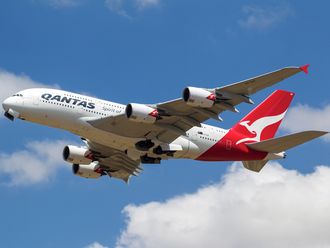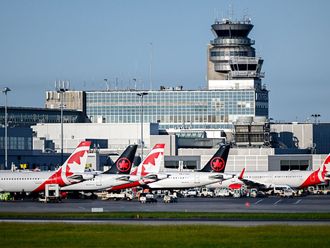Frankfurt/Paris: The western European auto market maintained its sharp descent towards levels last seen nearly 20 years ago as consumers worried about unemployment and euro zone austerity shunned car dealerships in October.
Industry data published on Friday showed that France incurred its 12th straight monthly decline in new car registrations, while demand in Spain continued to plummet.
Germany may have bucked the trend with an increase of half a percent, but once two extra working days in October are stripped out of the equation, its meagre growth transforms into a material decline.
Smoothing out calendar effects by looking at Germany’s market over the past two months shows a market declining about 5.4 per cent in the period.
“Currently there is no early indicator or other hard data pointing to an improvement in the next few months,” said Ulrich Winzen, chief forecaster in Germany for auto industry consultant R.L. Polk.
He currently expects western European car sales will fall clearly below the 12 million mark both this year and next — a level generally not seen since 1986, with the exception of 1993 when there was a short, sharp drop to 11.3 million cars.
The extreme weakness is also starting to show up in the German car output, according to data published by the domestic auto industry. Production volumes dropped by 6 per cent last month to 446,100 vehicles as carmakers steered away from stockpiling inventories of unsold vehicles.
German brand Opel, a unit of General Motors, continued to struggle in its home market despite a new money-back guarantee in place since late September.
Sales fell 15 per cent during the first full month of the campaign, shaving Opel’s market share in Germany to 6.1 per cent — a new low for this year. According to the Car think tank in Duisburg, demand for Opels in Germany has never been lower than in this year.
While Germany nevertheless is holding up relatively well, given its largely resilient labour market and higher consumer confidence, car markets in structurally weak southern European economies continue to suffer heavily as more and more budget cuts, tax hikes and supply-side reforms are implemented.
September’s near 22 per cent slump in Spain came after the government raised value-added tax, applicable from September 1, as part of its fiscal consolidation programme.
The decline in France remained in single digits last month, but that did not help Renault, whose core brand suffered a 27 per cent drop in domestic sales despite the launch of its popular Clio subcompact in September.
“October’s sales figures are not satisfactory but they are nonetheless in line with our expectations,” said Bernard Cambier, Renault’s sales chief in France, adding that an improvement would be seen in December.
Despite the current gloom, Polk’s Winzen held out hope that auto demand in France, Italy and Spain auto could stabilise towards the end of next year, helping beleaguered carmakers like Peugeot and Fiat.
“Economists tend to underestimate not only recessions but also recoveries, and if we no longer wake up wondering what terrible news about the euro zone awaits us, then there is significant pent-up demand just waiting to be released once things quiet down,” he said.
The Spanish government introduced a new car subsidy scheme on October 1 to stimulate the battered market in the economic downturn. Industry association Anfac said the plan would be reflected in sales over the next few months.
“There is light at the end of the tunnel and we don’t think it’s coming from oncoming traffic,” Winzen said.












